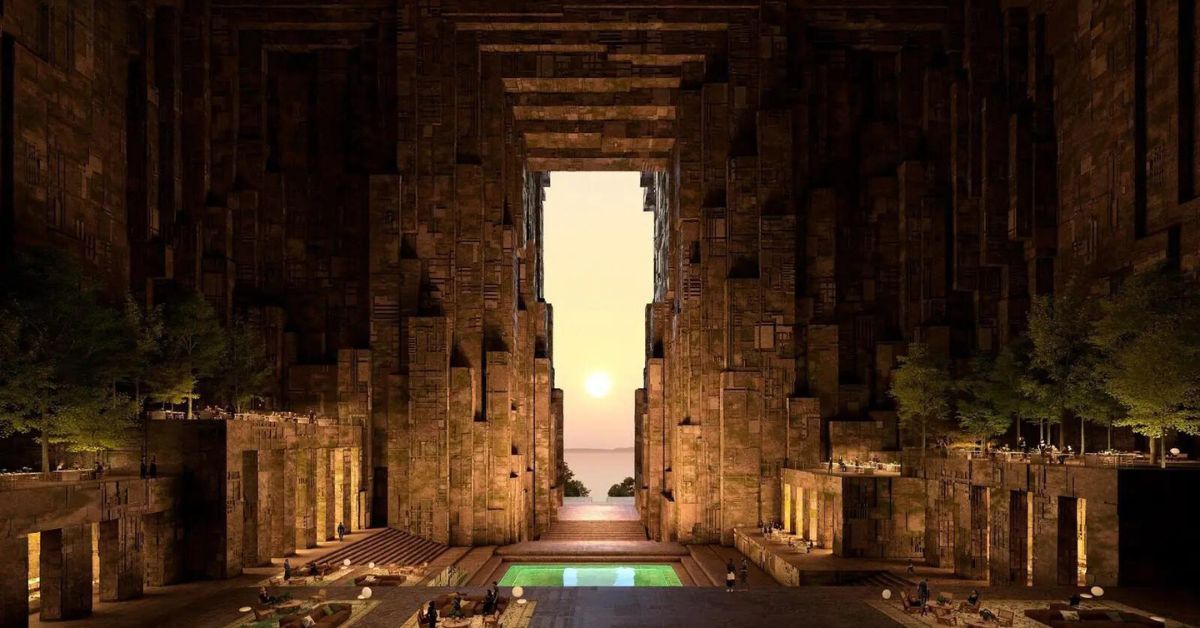DUBAI, UAE — An increasing number of governments are advancing into a smart future, developing cities that utilize information and communication technology (ICT).
In the MENA region, countries like the UAE and Saudi Arabia are demonstrating strong commitments to urban transformation. Frost & Sullivan report that these countries are investing nearly $50 billion in smart city projects by 2025.
Let’s examines the developments and achievements in the MENA region’s smart city initiatives as of 2023.
Saudi Arabia
In the Kingdom, rapid urbanization has brought challenges that innovative solutions under Saudi Vision 2030 aim to address. In 2017, the Ministry of Municipal and Rural Affairs and Housing (MOMRAH) launched its first Smart Cities program in response to this vision, targeting 17 cities for smart urban development, including Riyadh, Yanbu Industrial City, Makkah, Jeddah, Madina, Al-Ahsa, and Neom. By 2019, the Saudi smart cities market was valued at $3.5 billion.
Riyadh, the capital, is transforming into a smart city. In the Smart City Index 2023, Riyadh ranked 30th out of 141 cities, leveraging advanced technology and financial resources. The city uses ICT to foster urban growth, sustainability, and quality of life, implementing reforms in urban governance and community participation. Key initiatives include Saudi Vision 2023 and other urban development plans.
However, Riyadh, like many global cities, faces challenges in becoming a smart urban center. These include modifying regulations, streamlining guidelines, estimating infrastructure costs, creating intelligent programs, managing large-scale projects, acquiring AI expertise, transforming current practices, engaging the public in decision-making, developing human capital, and establishing effective communication channels.
The United Arab Emirates
The UAE continues as the MENA region’s smartest city, ranking 13th worldwide in the 2023 Smart City Index by the International Institute for Management Development (IMD).
Abu Dhabi, home to Masdar City, one of the region’s most significant smart city projects, began its construction in 2008. Envisioned as a model for sustainable cities, Masdar City spans 6 square kilometers and will house over 40,000 residents and 1,500 businesses near the Abu Dhabi International Airport, costing approximately $20 billion.
This year, Masdar City introduced ‘The Link,’ a 30,000 square meter sustainable community project featuring eco-friendly structures, event spaces, shopping, leisure amenities, and open-air squares.
At the Abu Dhabi Smart City Summit, Mohamed Ali Al Shorafa, Chairman of the Department of Municipalities and Transport, highlighted, ‘Abu Dhabi’s ranking of 13th out of 141 in the IMD Smart City Index 2023 reaffirms our commitment to openness, innovation, inclusivity, and sustainability in smart city development.’ He announced the launch of several initiatives, including the Smart City Platform, IoT-enabled smart parks, and Hala Wi-Fi for extensive public internet access.

Other GCC countries
Other GCC countries, such as Oman and Qatar, are also developing smart urban hubs. Qatar’s Lusail City is a model of sustainable living, featuring environmentally rated buildings, green spaces, waste management, sewage treatment, district cooling, and smart services supported by a command-and-control center.
Meanwhile, Oman is planning to construct Sultan Haitham City, a smart city designed to accommodate 100,000 people outside Muscat. Spanning 14.8 square kilometers, this vibrant, data-driven urban area will feature basic amenities, efficient traffic management, and advanced ‘smart infrastructure.’ This development aligns with Oman Vision 2040’s emphasis on sustainability, which includes initiatives like waste-to-energy plants, solar facilities, and shaded structures.








